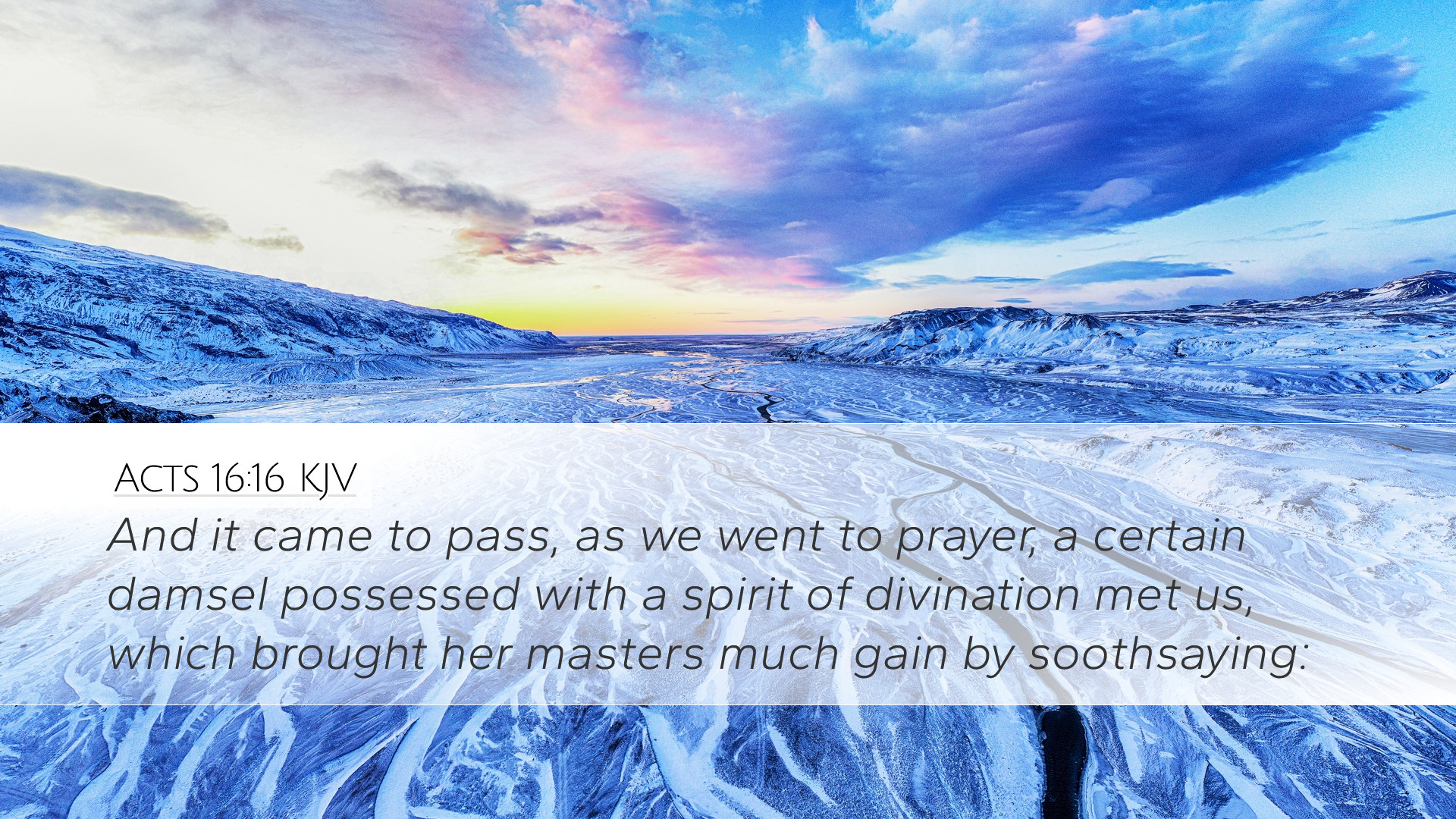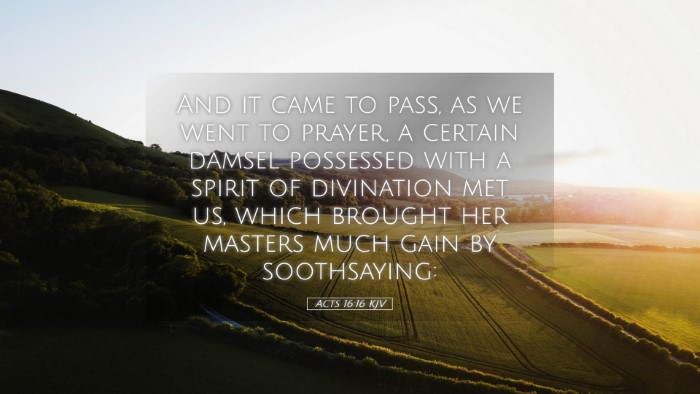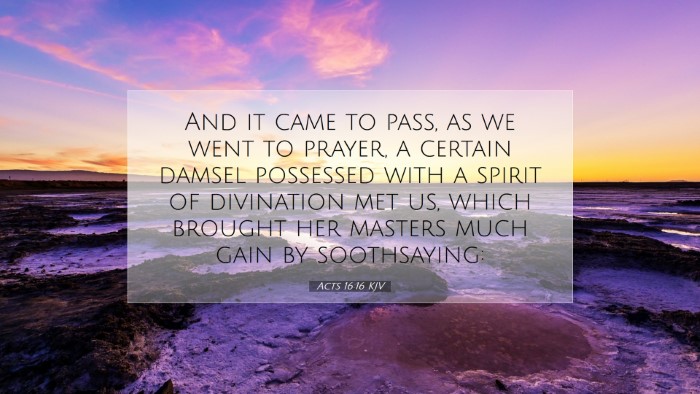Commentary on Acts 16:16
Bible Verse: "And it came to pass, as we went to prayer, a certain damsel possessed with a spirit of divination met us, which brought her masters much gain by soothsaying."
Introduction
The verse Acts 16:16 introduces us to a significant encounter during Paul's missionary journey in Philippi. The passage not only sets the scene for a miraculous event but also reveals deeper theological and social dynamics at play. This commentary will analyze this verse by incorporating insights from historical context, theological implications, and character studies, drawing from the works of Matthew Henry, Albert Barnes, and Adam Clarke.
Historical Context
Location and Cultural Setting: The city of Philippi was a Roman colony, known for its cultural diversity and pagan beliefs. It housed many Jews, as indicated by the presence of prayer gatherings (Acts 16:13). The moral and spiritual atmosphere of the city provides essential background for understanding the dynamics of this encounter.
Understanding the Damsel
- Possession and Divination: The young woman is described as being 'possessed with a spirit of divination.' This phrase indicates that she was under the influence of an evil spirit, often interpreted as a python spirit, which was associated with the Delphic oracle of Apollo. Albert Barnes notes that her abilities in soothsaying brought profit to her masters, indicating exploitation.
- Social Implications: Adam Clarke points out the social plight of the damsel. As a slave, she possessed no agency over her life and was used solely for the financial gain of her owners. This element illustrates the broader theme of human trafficking and oppression, which remains poignant in modern discussions.
- Symbol of Spiritual Bondage: Matthew Henry posits that the damsel symbolizes people in spiritual bondage. She is not only a victim but also a representation of those ensnared by sin and demonic influence, highlighting the need for redemption.
The Significance of Prayer
The verse mentions that the encounter took place "as we went to prayer." This detail underscores the importance of prayer in the life of the believer and the church. Each of the commentaries stresses the notion that prayer aligns the soul with divine purpose. This particular moment of prayer becomes a critical juncture for spiritual warfare, as Paul and his companions are about to face opposition from the forces of darkness.
The Encounter and Its Theological Implications
- Recognition of Authority: The damsel's proclamation, which acknowledges Paul and the message of salvation, serves as an ironic twist. Adam Clarke suggests that this recognition underscores the authority of the apostles over demonic powers, affirming their mission to spread the Gospel.
- Spiritual Warfare: Matthew Henry emphasizes that the confrontation illustrates spiritual warfare. The spirit that empowers the damsel attempts to undermine the work of Paul, signaling that present-day ministry often encounters similar spiritual adversities.
- Purpose of the Encounter: Acts 16:16 demonstrates divine orchestration. The presence of the damsel reveals both the necessity for liberation and the power of the Gospel. Albert Barnes elucidates that this encounter was crucial in establishing a foothold for the Gospel in Philippi.
Lessons for Contemporary Faith
The complexities of Acts 16:16 offer several practical lessons for modern believers:
- Awareness of Spiritual Realities: Understanding that there are spiritual forces at play encourages believers to maintain vigilance in their spiritual lives.
- Compassion for the Oppressed: The social status of the damsel challenges the church to advocate for those who are marginalized and exploited in society today.
- Prayer as Warfare: The importance of regular prayer reinforces the concept that prayer is essential in combating spiritual darkness.
Conclusion
Acts 16:16 captures a multifaceted encounter that serves as a poignant reminder of the continuing battle against spiritual forces and the necessity of prayer. The experiences of Paul and the enslaved damsel speak to both historical and contemporary issues of spiritual oppression and the power of the Gospel. Drawing insights from wise commentators like Matthew Henry, Albert Barnes, and Adam Clarke, this verse encourages pastors, students, and theologians to delve deeply into the complexities of faith, social justice, and the transformative power of Christ.


